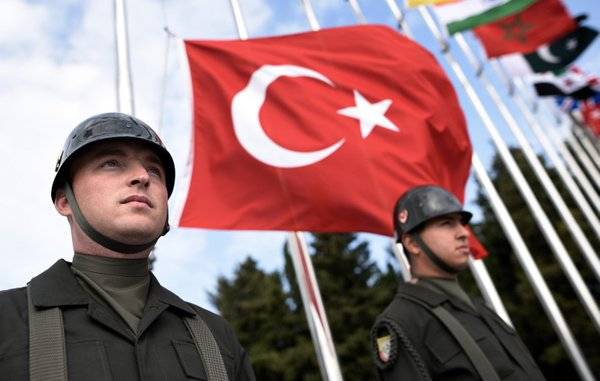Turkish celebrate 100 years of WW 1 victory in Iraq
Shares

ISTANBUL: (APP) Turkish celebrate 100 years of WW 1 victory in Iraq.
Turkey's leaders on Friday celebrated the 100th anniversary of a famous victory by the Ottoman army in World War I against Allied forces in today's Iraq, as the authorities place greater emphasis on the pre-Republican history of the country.
The surrender by a British-led force at the garrison in Kut al-Amara (Kut in modern Iraq) is seen as the last Ottoman victory of the war which ended in the defeat of the Empire and its German allies.
"Turkey is changing. We are remembering again our history that was forgotten. We are rediscovering our history," Prime Minister Ahmet Davutoglu said at a major ceremony in Istanbul also attended by President Recep Tayyip Erdogan.
"It was a matter a life and death for the Ottomans. This was a resistance of all the peoples of the middle east against colonialism," said Davutoglu.
Turkey's rulers have been keen to use the 100th anniversary of World War I as a source of national pride, even though the war ended in defeat for the Ottoman Empire and would ultimately lead to its collapse.
Last year, the Turkish government placed great emphasis on celebrating the 100th anniversary of the 1915 Battle of Gallipoli where Ottoman forces resisted a ground invasion by the Allies.
The ruling Islamic-rooted Justice and Development Party (AKP) and Erdogan are eager to show the Ottoman Empire as a source of pride for modern Turks.
But Davutoglu denied that the celebration of the victory at Kut marked any rejection of the modern Turkish republic founded by Mustafa Kemal Ataturk in 1923 in the ruins of the Ottoman Empire.
"The spirit of Kut al-Amara is the most significant foundation on which our republic has risen."
"Kut al-Amara is a victory of all of us. Kut al-Amara is the victory of all peoples of the Middle East."
The Siege of Kut began in December 1915 when joint British and Indian forces seeking to take Baghdad decided to hold their position in Kut rather than fall back further against advancing Ottoman forces.
With their food supplies running low, the Allied troops were besieged by the Ottoman forces for months as British troops sent to relieve them were beaten back in successive battles by the Ottomans.
The commander of the British-Indian forces, Charles Townshend, surrendered on April 29, 1916 and thousands of Allied troops who survived were taken prisoner.
